Leave No Trace interview: Ben Foster on the therapeutic power of nature
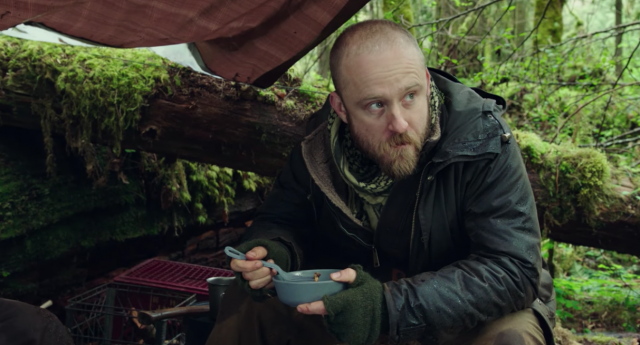
Ben Foster is an actor’s actor. Diving fully into challenging and meaty roles, he embodies characters with all his might. In American folk director Debra Granik’s latest feature, Leave No Trace, he gives a touching performance as a renegade father living off the grid in the woods outside Portland with his 13-year-old daughter (Thomasin McKenzie). We caught up with Foster in Cannes after the premiere of the film to chat about tapping into the role of Will, his real-life inspirations and the joys of filming in rainy Oregon.
Can you imagine yourself doing something like Will: leaving civilisation to live in nature?
Well, the joy of the job is spending time thinking about it. Intensely. There are a lot of elements that, as a new parent, I relate to deeply. How to protect your light and how to protect your child’s innate goodness. You want to feed the child, that perfect little being, something that they can receive nutrition and grow from. A lot of our culture in the States, as you very well know, feels polluted. It’s not an entire loss but I venture to say that it’s never been a better time to be a girl. But man there’s a lot of pressure and the woods is a very extreme remedy to that.
But isn’t the story about him more than her? He needs remedying more than she does.
Well that’s what we grow to realise. But so often we hurt the people we love because we think we know better, we think we’re doing them a service. I’ve been hurt by people very close to me because they thought they were doing the right thing. But you’re right. [Will] is a man who has experienced trauma. Triggers are what effect flare-ups of traumatic experiences so one solution could be fewer triggers = mental health! For Will, [nature is] self-medicating. This is a person who’s like, “If I’m not going to be stimulated by the world, and if I can also protect my daughter from a polluted environment then…” It becomes a philosophy. It’s not necessarily the right one but it’s one he’s actively pursuing.
Silence is really important for Will and for the way in which he copes with things. What is silence for you as an actor?
It’s everything. We respond to environments, we respond to each other. Unfortunately, most conversations are one person talking and then the other person talks at them and you wait your turn until you can say the other thing you wanted to say. Very few people listen. It was important to Debra [Granik] and me during the preparation process that we allow the physical actions to speak for [Will]. While I was training in Wilderness and Survival Skills, we recognised that we could transmit a lot of information without saying it. In terms of moving through environments, that training became very specific internally. The line “Is it a need or is it a want” was also a key for me into the script and into the character that I brought back to Debra and said, let’s look at the most economical way of speaking. He should use his words the way he uses a tool. It should be that economical and needed. If he wants to say something but doesn’t need to, he doesn’t say it. We went through the script and crossed a lot of things out.
How much did you get rid of in the end?
I mean, you saw the film. There’s not a lot of fat on it. So the joy then became letting those pictures and that backstory vibrate in my body and responding to Thomasin in hers. That felt like the most natural, easy thing. The pleasure of the job was stripping it down.
In terms of personal insight when building the characters, you recently became a father. Did you draw upon that to further understand and build the character of Will? Did your personal life have any influence?
My fiancée was in her second trimester while we were filming this so it was ever-present. We were expecting a child at home and then we’re saying goodbye to one slowly at work. It’s hard, I can’t separate the two. They’re very much woven together. It was very auspicious for me to be allotted that time to consider deeply what kind of father will I be? And there’s no easy answer to that because my own traumas and backstory and life are going to influence, probably in ways I’m going to regret at times, [my child]. That’s very hard on a heart: to recognise that you’re going to fuck things up along the way and that that’s just the way it is.
Did you also have this realisation that all our parents were people before they had us?
Wow, right? I’ve been talking to my parents so much more [about] our daughter, being like, “I’m sorry. I didn’t get it”. I really didn’t get it. It’s so confusing because your heart gets kicked open and you’re humbled to the ground every day. It’s a new thing that I don’t understand but that I just have to figure out. I’m grateful for that death in me. Something died and I’ll never recover. I’m grateful for that.
After watching this film I instantly wanted to buy a tent and do something in the wilderness, but what was it to actually like to shoot in the woods?
It was great! The worst part of shooting the film was going into Social Services because you’re in these terrible little boxy rooms. Being in the forest was great. It’s not a hard job. The crew we worked with was accustomed to working in the environment and they love it. The worst part was coming to the city.
In a way, Will’s spirit is reminiscent of that of a samurai: he was a warrior, he lives in the forest, he has his own code of honour… can we speak about how you built the ethical side of this character?
The samurai is such a beautiful image, I really dig that. It was something that Debra and I spoke around. We didn’t use the idea of samurai but the limitations he puts on himself, the discipline, is an internal honour. He is a warrior. You don’t have to fight wars to be a warrior, it can be spiritual too. But this is a man who served in the theatre of war and who decided that he’s going to live with a code and that he’s going to share that code with his kin: when one is connected to nature one is connected to themselves.
Is that a good thing or a bad thing?
It’s a great thing! Having a connection to nature is always a great thing. In my personal life I’ve found medicine in nature. We’ve got to get to our phones and we’ve got to deal with things. Sickness, health, happiness, challenges, this is just part of being a human being and it’s very transient. That’s scary. [Phones] make us feel like we’re connected but really what they’re doing is the opposite. I was reading about posture the other day and just by doing this (hunches over looking at phone), I’ve cut my world off completely. I’ve cut my vision off, I’m folding over my heart, I’m not looking out, but I’m “connecting”. That does something to us. I believe our bodies don’t lie. If we stand like this (sitting up straight) and we stand up straight and we breathe into our guts, we feel more present. Nature is a way of looking out. It’s bigger than us. It’s the eternal. We may fuck it up. We may blow it to smithereens but there will still be water somewhere. There will still be trees somewhere. We’re not going to be here and that’s great! The time we have is so valuable it’s important to be present. [Phones] are hurting us. For me, medicine is looking out: go touch a tree, go put some water on your head, get out. The joy is in sharing stories with each other and in looking out.
So how’s your relationship with social media?
None! Zero! Nothing. No Instagram, no Facebook, no Twitter. It’s your choice and it’s not wrong to do it but we need to be able to find balance. A lot of us have lost balance and I think Debra’s film is about maybe going the other way a bit too far.
Zoe Tamara
Leave No Trace is released nationwide on 29th June 2018. Read our review here.
Watch the trailer for Leave No Trace here:



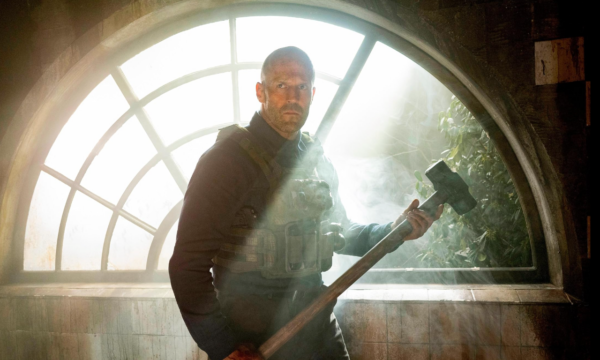
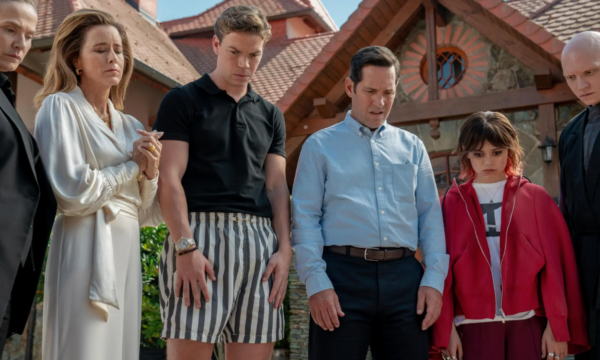
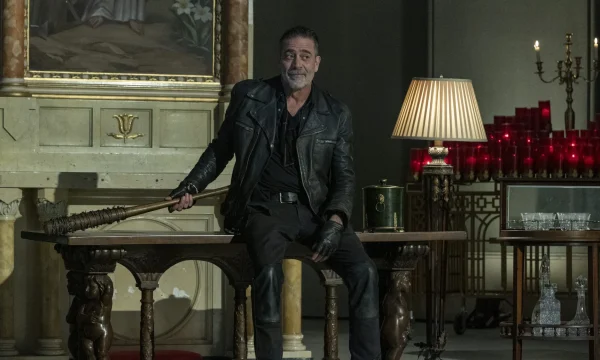
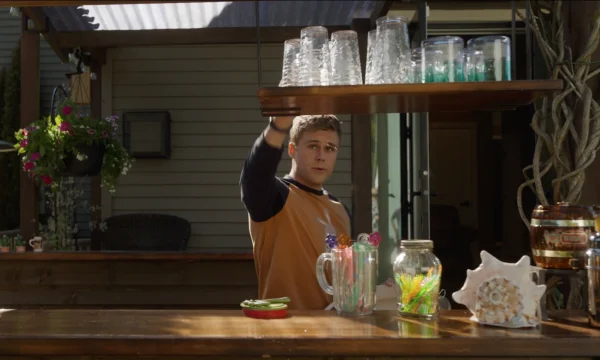
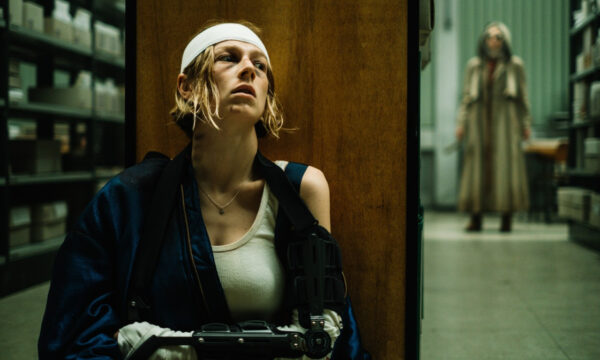
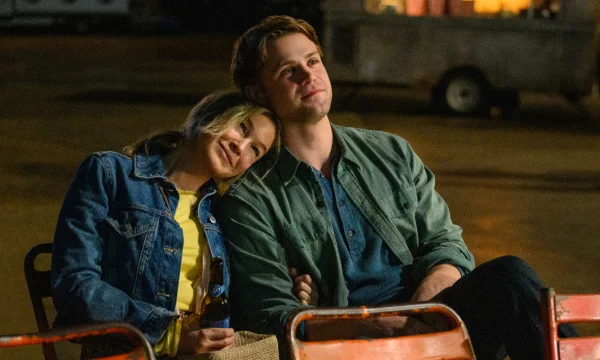
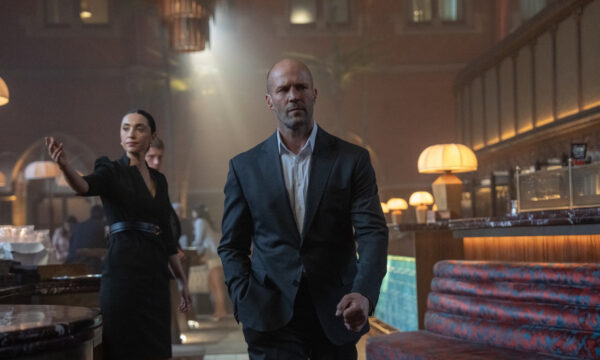









Facebook
Twitter
Instagram
YouTube
RSS